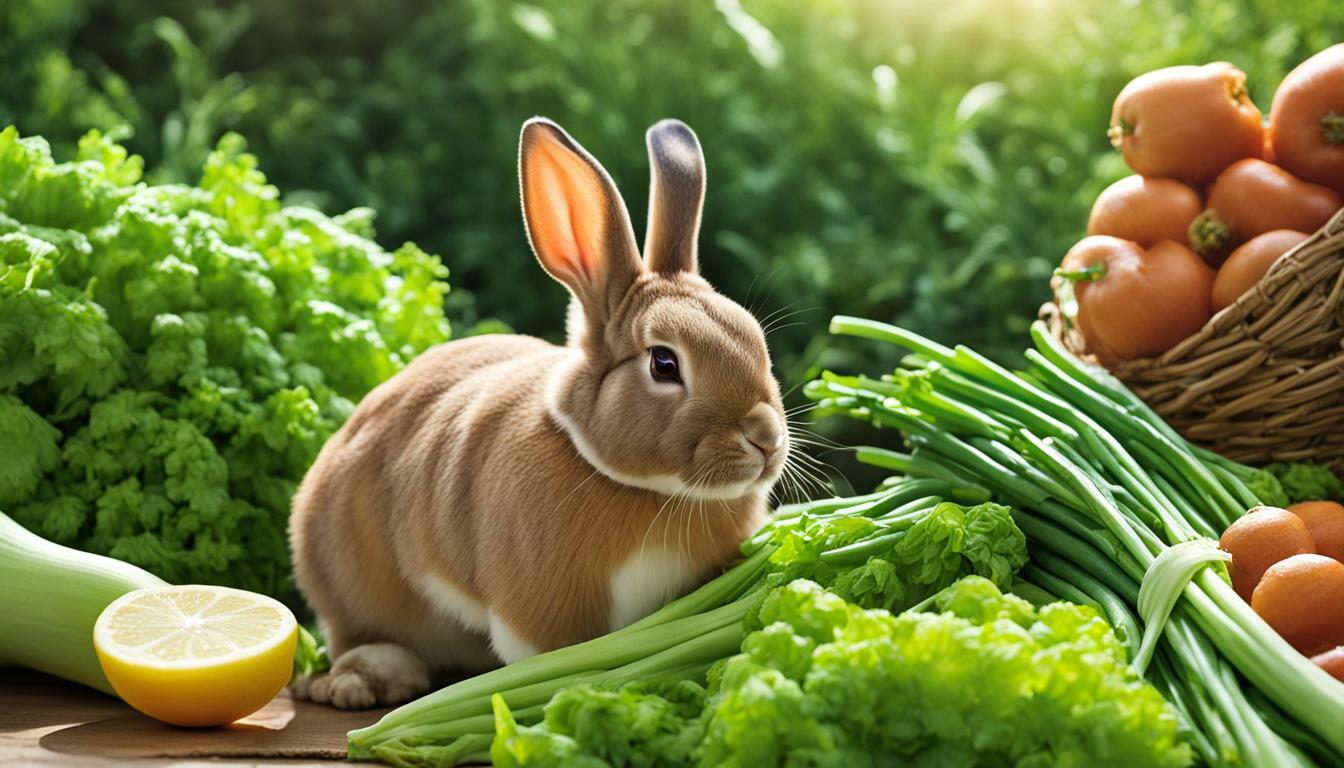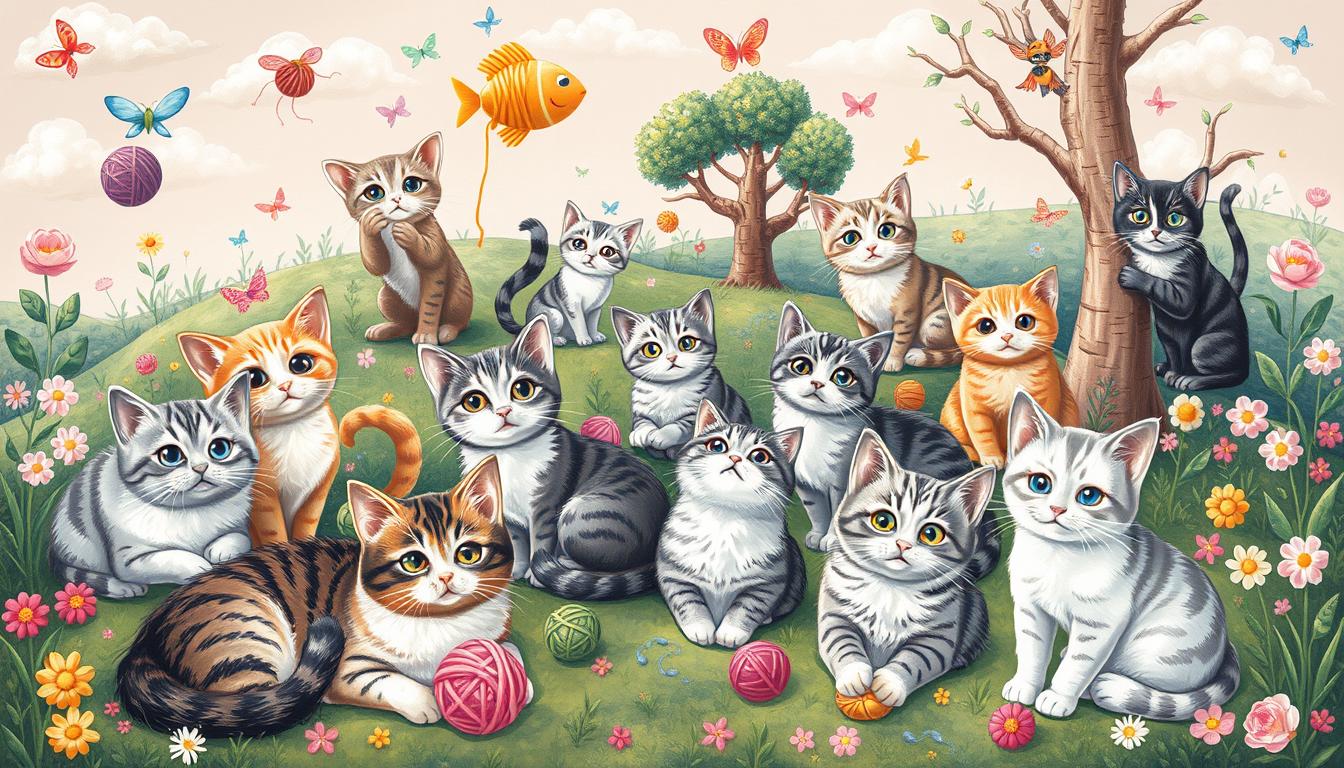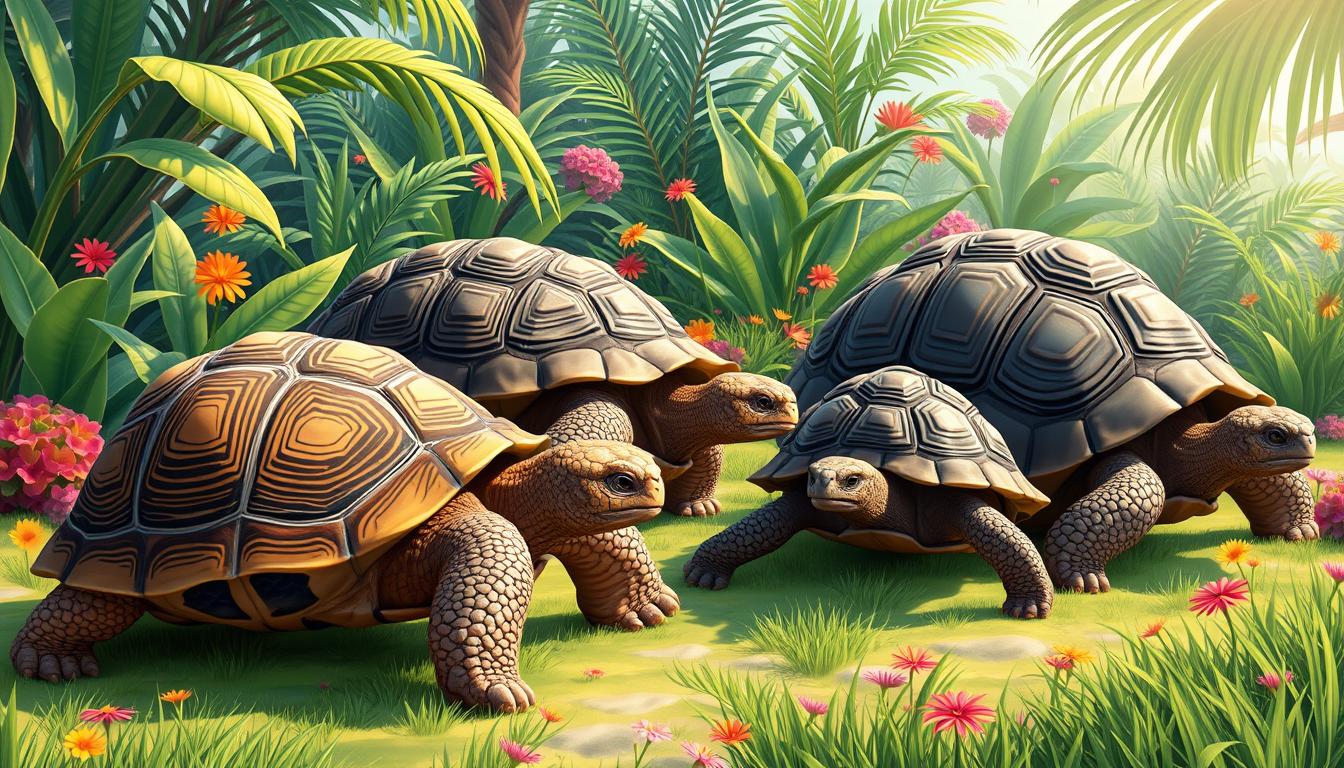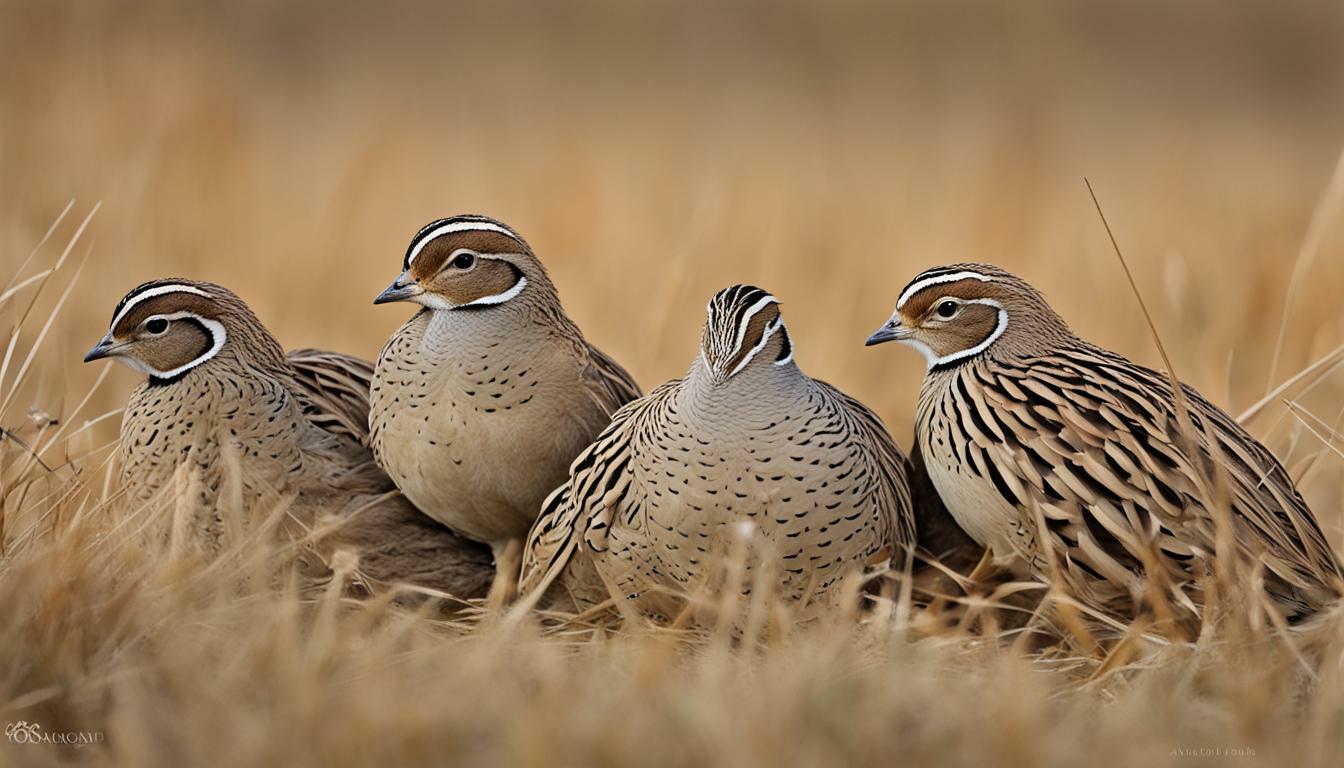Can Rabbits Eat Green Onions? A Healthy Bunny Guide

Table of content:
- An Overview of Rabbit Nutrition
- Are Green Onions Toxic to Rabbits?
- Can Rabbits Eat Any Part of Green Onions?
- Healthy Alternatives Rabbits Can Eat
- Are There Any Similar Veggies Rabbits Can’t Eat?
- Can Rabbits Have Pellets With Dried Onions?
- Quick Facts on Green Onions and Rabbits:
- Conclusion: Look Beyond the Alliums
Green onions, also known as scallions or spring onions, are a common ingredient in many foods. Their mild, oniony flavor makes them a tasty addition to salads, soups, stir-fries, and more. But can our fuzzy, floppy-eared friends enjoy them too? Let’s take a closer look at whether rabbits can eat green onions.
An Overview of Rabbit Nutrition
Before diving into whether green onions are safe for rabbits, it’s helpful to understand some basics about rabbit dietary needs.
Rabbits are herbivores, meaning they eat plants. The optimal rabbit diet consists mainly of hay, leafy greens, and a small amount of rabbit pellets. This combination provides them with the fiber, vitamins, and minerals they require.
Some key nutrition guidelines for rabbits include:
- Hay should make up at least 75% of their diet. Timothy hay, orchard grass, and oat hay are excellent choices. Hay supports healthy digestion and provides fiber to wear down teeth.
- Leafy greens should be fed daily. Around 1 packed cup per 2 lbs body weight is a good amount. Examples include kale, romaine lettuce, parsley, cilantro, carrot tops, and more. Greens provide vitamins and hydration.
- 1/4 cup pellets per day for a 5 lb rabbit. Pellets provide balanced nutrition in a compact form. Look for a high-fiber timothy-based pellet.
- Occasional fruits and vegetables as treats. Items like banana slices, blueberries, and carrot pieces can be given 1-2 times per week.
- Unlimited access to clean, fresh water. This is essential for rabbit health.
Now that we’ve reviewed the foundations of proper rabbit nutrition, let’s find out where green onions fall into the mix.
Are Green Onions Toxic to Rabbits?
Green onions are not recommended for rabbits. While not as dangerously toxic as regular onions, they can still cause adverse effects in rabbits if consumed.
Here’s an overview of the risks:
- Irritation to the digestive tract – Green onions contain compounds called disulfides and thiosulphates. These can irritate the stomach lining and intestines of rabbits. Signs include loose stool or diarrhea.
- Anemia – Onions contain chemicals that can cause the oxygen-carrying component of red blood cells to rupture. This leads to anemia. Rabbits may become weak and lethargic.
- Potential organ damage – Research shows onions may also be toxic to the liver and kidneys if eaten in large quantities over time.
So while a single small serving of green onions likely won’t cause immediate, life-threatening toxicity, they are still not considered safe or healthy for rabbits overall. It’s best to avoid feeding them.
Can Rabbits Eat Any Part of Green Onions?
Some sources claim that certain parts of green onions, like the green tops, are safer to feed rabbits than the white bulb portion. However, there is limited evidence to support this.
Here is a quick look at each part of the green onion:
- Green onion greens – The green stalks contain the same disulfides, thiosulphates, and other compounds as the bulb. They can be just as irritating and toxic.
- White onion bulb – This part may have a higher concentration of thiosulphates. However, the greens are not proven safer. Avoid feeding either portion.
- Roots – The roots contain the same compounds and risks. It’s best not to share with rabbits.
Overall, no part of the green onion can be completely guaranteed as safe or non-toxic for rabbits to eat. It’s better to avoid onions altogether when feeding bunnies.
Healthy Alternatives Rabbits Can Eat
While green onions may be off the table, the good news is there are many other yummy, nutritious options you can share with your rabbit instead!
Here are some healthy, low-risk vegetables and herbs to feed your bunny:
- Leafy greens – Try various lettuces, kale, spinach, chard, cilantro, basil, mint.
- Broccoli and broccoli leaves – Offer florets and greens in moderation.
- Carrots and tops – Grated carrot treats or tops are a hit with bunnies.
- Bell peppers – Offer red, green, or yellow pepper slices.
- Edible flowers – Roses, pansies, nasturtiums, violets. Always confirm first that flowers are rabbit-safe.
- Cucumbers – Provide small slices of this hydrating veggie.
- Celery – Offer a few small sticks for a crunchy texture.
- Radishes – Offer a couple of shredded radish rounds 1-2 times per week.
Rotate through a variety of produce from the bunny-safe list to keep your rabbit’s diet diverse and exciting. Introduce new items slowly to ensure they agree with your pet’s digestive system.
Are There Any Similar Veggies Rabbits Can’t Eat?
While we’ve covered that green onions are not a good choice, rabbits, unfortunately cannot eat other allium vegetables either. Here are some other related foods to avoid:
- Onions
- Shallots
- Leeks
- Chives
- Garlic
The entire allium family contains compounds that can irritate rabbits’ stomachs and potentially cause toxicity. So steer clear of sharing any veggies in this group. There are so many other great options out there for your bunny!
Can Rabbits Have Pellets With Dried Onions?
Some commercially available rabbit pellets contain onion or garlic powder flavoring. It’s best to avoid feeding these to your rabbit. Even in dried form, onions maintain the compounds that can cause adverse effects if eaten regularly.
Check ingredient labels on pellets and look for a diet free of any onion or garlic derivatives. There are many great onion-free formulas available. Offering a plain timothy-based pellet is the safest choice.
Quick Facts on Green Onions and Rabbits:
- Green onions contain irritating, potentially toxic compounds like disulfides and thiosulphates.
- No part of the green onion plant is proven safer than other parts. Avoid feeding all portions.
- signs of green onion toxicity can include diarrhea, weakness, lethargy, and potential organ damage.
- Many other yummy, nutritious veggies and herbs can be fed instead, like kale, broccoli, mint, and basil.
- Look for rabbit pellets free of onion or garlic powder. Read labels carefully.
Conclusion: Look Beyond the Alliums
While green onions provide a flavorful punch to many recipes, they are best kept out of rabbits’ diets. Look beyond allium family members like onions, leeks, and chives to build the safest, healthiest diet for your bunny.
Instead, choose from the diverse assortment of rabbit-approved greens, vegetables, herbs, and other plants. With a little creativity, you can concoct a regimen to keep your rabbit munching happily on a variety of delicious, nurturing foods. Develop a menu filled with leafy greens, broccoli, carrots, peppers, and edible flowers.
By understanding what foods to avoid paired with choosing from the wide selection of produce rabbits can safely eat, you can support your pet’s health while enjoying bonding over feeding time together. Just be sure to introduce any new additions slowly to give your bunny’s digestive system time to adjust. With patience and care, you’ll find plenty of rabbit-safe ingredients to keep their diet exciting and nutritious for years to come.
Welcome. I’m Adreena Shanum, the proud owner of this website, and I am incredibly passionate about animals, especially poultry. I founded adreenapets.com as a labor of love, stemming from my desire to share my knowledge and experiences with poultry enthusiasts worldwide.




